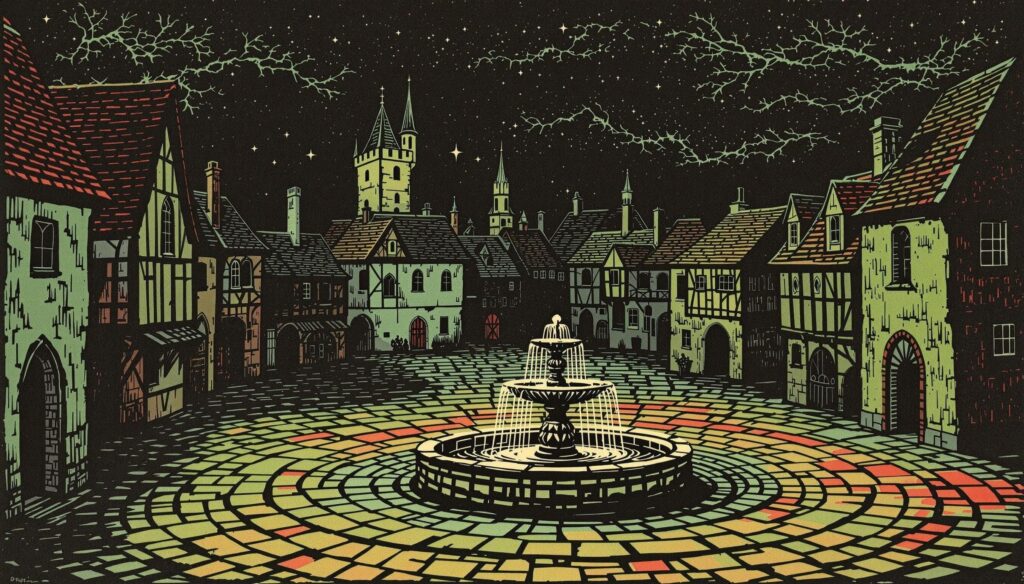In this passage, Zarathustra delivers a nocturnal monologue, rich in poetic imagery, reflecting on themes of solitude, giving, and the nature of light and darkness.
The narrative unfolds with Zarathustra noting that it is night, a time when all the leaping fountains speak louder and the songs of lovers awaken. He compares his soul to a springing fountain and the song of a lover. An insatiable desire resides in him, a longing for love that speaks the language of love.

Night it is: now all fountains speak more loudly. And my soul too is a fountain. Night it is: only now do all songs of lovers awaken. And my soul too is the song of a lover.
Zarathustra expresses a wish to be enveloped in darkness rather than being girded by light, highlighting his isolation due to his own luminosity. He laments that he lives in his own light, drawing the flames back into himself, and is unable to experience the joy of receiving. He muses that perhaps stealing might be more blissful than taking, underscoring his estrangement from reciprocal exchange.
He reflects on his constant giving, noting that his hand never rests from bestowing gifts, and envies those with expectant eyes and illuminated nights of longing. The misfortune of all who give, the eclipse of his own sun, and a desire for desire itself weigh upon him. Though others receive from him, he questions whether he still touches their souls, emphasizing a chasm between giving and receiving that is difficult to bridge.
A hunger grows from his own beauty; he harbors a wish to harm those to whom he shines and to rob his beneficiaries, revealing a paradoxical craving for malice born from his abundance. He contemplates withholding his hand even as others reach out, likening himself to a waterfall that hesitates in its descent.
Zarathustra observes that his happiness in giving has withered, and his virtue has grown weary from its own excess. He acknowledges the danger for those who always give: they may lose their sense of shame, and their hands and hearts may become calloused. His compassion no longer overflows for those who plead, and he notes the loss of tenderness in his heart, lamenting the solitude inherent in being a giver and the silence that accompanies those who illuminate others.
He remarks on the many suns that traverse empty space, speaking with their light to all that is dark, yet remaining silent toward him. There exists an enmity of light against the luminous; each sun follows its path mercilessly, cold and unjust toward other shining entities. He praises those who are dark and nocturnal, who create warmth from the luminous and draw nourishment from the udders of light.
Surrounded by ice, Zarathustra feels that his hand burns from the cold, and he thirsts for the thirst of others. Despite it being night, he is compelled to be light and suffers from a longing for the nocturnal and for companionship. His desire bursts forth like a spring, yearning for expression. As night awakens the songs of lovers and the fountains speak more loudly, so too does his soul become a springing fountain and the song of a lover.
